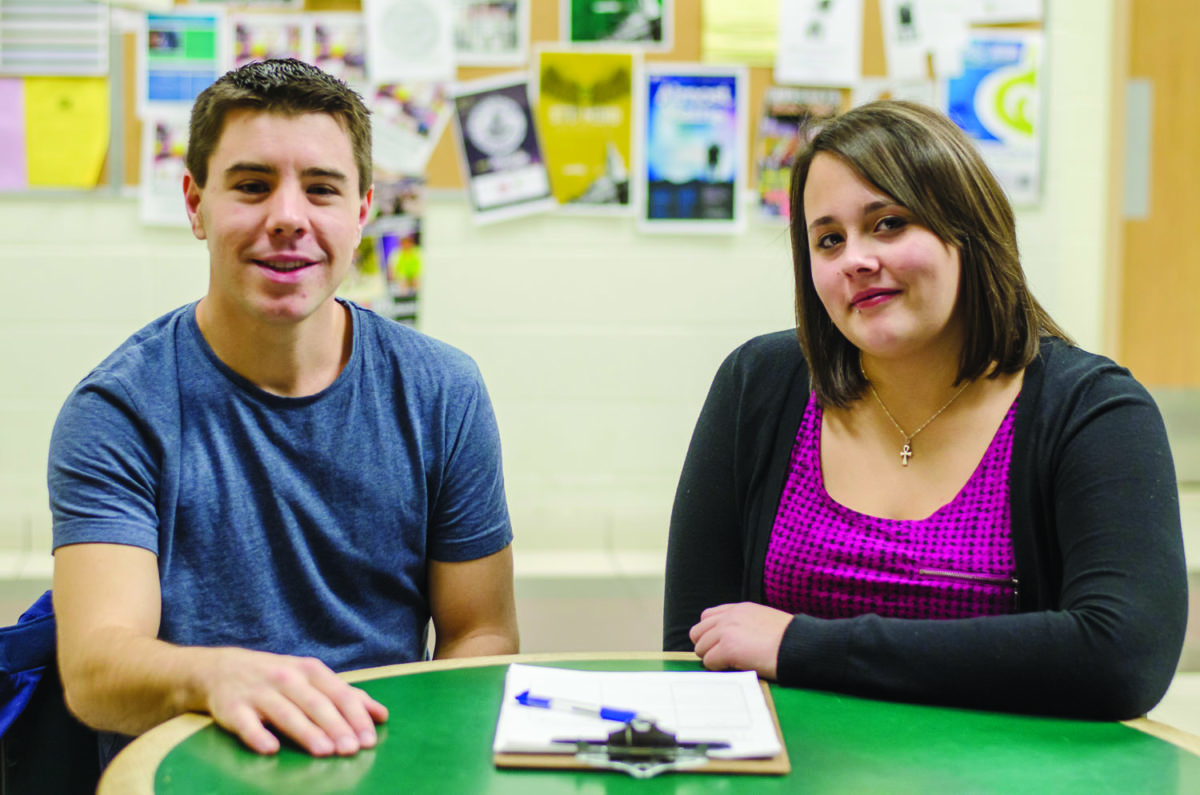
St. Thomas University students are petitioning for electoral reform in New Brunswick, calling for proportional representation in the province — a change that requires no consent from Ottawa.
“If the NDP gets 10 per cent of the vote but gets zero seats, then whose voices are actually being heard?” asked organizer Amanda Gallant.
Gallant and Matthew Belyea founded Students for Democracy in NB to organize the effort. Both are social work students at St. Thomas University who grew up in traditionally conservative-held ridings. Both students became frustrated that their votes never amounted to anything come Election Day.
Gallant and Belyea claim anyone who votes for the losing party has actually had their vote “wasted.”
“People don’t feel like votes are actually being translated into seats, and it prevents people from feeling like they are able to participate and make a difference, and that’s part of the reason why we’ve made this our lobbying effort,” said Belyea.
Earlier this year a poll conducted by Environics found a majority of Canadians from across the political spectrum support such a change at the federal level.
The results found 77 per cent support from Liberal voters, 61 per cent from Conservative voters, 82 per cent support from NDP voters and 93 per cent from Green Party voters.
The Green Party is the only federal party with a presence in New Brunswick to make a push for the system. Neither of the parties holding seats in New Brunswick legislature are seriously considering it.
Federal Green Party Leader Elizabeth May told the Aquinian last month that the current election format creates “a risk of ending up with a government the majority of Canadians didn’t vote for.”
While the idea has widespread support, some such as STU political science professor Thomas Bateman see obstacles in the way.
“Of course the major roadblock is that the party in control of the government will be the one with the ability to change the electoral system, but as the government in place, it has benefited from the current system. And so it is unlikely to support a change from that system to another that doesn’t produce majorities nearly as easily,” he said.
All 10 provinces and the Yukon continue to use the first-past-the-post system and they have since their foundation.
Bateman points to New Zealand as an example of how proportional representation could come about in New Brunswick.
Prior to the 1990 national election, the country’s National Party promised a referendum on electoral change if they were elected. They were, and by 1993 a referendum was accepted by the people to change from the British system to a proportional one.
Still, he does not see it happening in Canada in the near future.
“We have actually had referenda, consulted referenda, and none have worked.”
Of course there are other flaws with proportional representation, just like any electoral system.
Often there will be weeks, months, or, in extreme cases, years after an election before a coalition among parties forms to make a stable government.
Belyea said while this may be true, the current system faces an opposite problem.
“If one side says one thing, then automatically the other says the opposite, and there’s actually no real debate that’s happening,” she said. “With proportional representation, they have to come together on ideas to function.”
